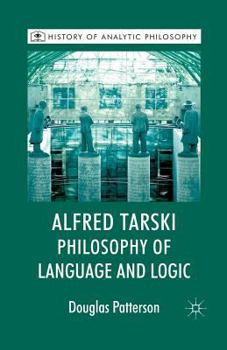Alfred Tarski: Philosophy of Language and Logic
Select Format
Select Condition 
Book Overview
Series Editor's Foreword Introduction Intuitionistic Formalism Tarski as Intuitionistic Formalist Semantics Truth Indefinability and Inconsistency Transitions: 1933-1935 Logical Consequence Conclusion Bibliography Index
Format:Paperback
Language:English
ISBN:1349306738
ISBN13:9781349306732
Release Date:January 2012
Publisher:Palgrave MacMillan
Length:262 Pages
Weight:0.71 lbs.
Dimensions:0.6" x 5.5" x 8.5"
Customer Reviews
0 rating





